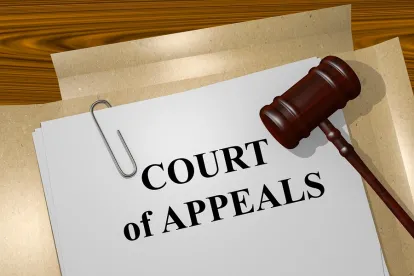On July 2, 2018, All American Check Cashing, Inc., Mid-State Finance, Inc., and the president and owner of both companies (collectively, “All American”) filed a brief asking the U.S. Court of Appeals for the Fifth Circuit to find the Bureau of Consumer Financial Protection (“BCFP” or the “Bureau”) (formerly known as the CFPB) unconstitutionally structured and to strike down the Consumer Financial Protection Act (“CFPA”), which created the agency, in its entirety.
The appeal follows a 2016 complaint filed by the Bureau in the U.S. District Court for the Southern District of Mississippi against the two check cashing and payday loan companies and their principal for alleged unfair, deceptive, and abusive acts and practices. In that case, All American moved for a judgment on the pleadings on the basis that the BCFP is unconstitutionally structured as an independent agency with a single head whom the president can remove only “for cause.”
In March 2018, the district court denied the motion by adopting the reasoning of the U.S. Court of Appeals for the D.C. Circuit’s recent en banc majority decision upholding the Bureau’s structure in PHH Corp, et al. v. Consumer Financial Protection Bureau. (Our coverage of the PHH decision is available here.) All American moved to appeal the denial of the motion.
Since then, the only federal court to reach the issue of the BCFP’s structure – the U.S. District Court for the Southern District of New York (“S.D.N.Y.”) – ruled against the Bureau, adopting portions of the PHH dissents written by D.C. Circuit judges Karen Henderson and Brett Kavanaugh. Notably, the recent S.D.N.Y. decision went further than the PHH dissents and ruled that the CFPA’s defect could not be remedied merely by invalidating its for-cause removal provision. Rather, the entire CFPA, which is Title X of the Dodd-Frank Act, would have to be struck in its entirety. (More of our coverage on the S.D.N.Y. decision is available here.) Accordingly, All American’s brief to the Fifth Circuit argues for ruling against the Bureau and for striking down the agency’s organic statute entirely.
The Fifth Circuit appeal is particularly noteworthy given that the circuit is considered to be generally more skeptical of the administrative state than the D.C. Circuit. A decision in line with the S.D.N.Y. opinion, or even a more modest decision in line with the PHH dissents, would create a circuit split, greatly heightening the likelihood of the issue of the Bureau’s constitutionality reaching the U.S. Supreme Court. The case is also a timely reminder that Judge Kavanaugh, if confirmed to the Supreme Court, would be a strong voice for the unconstitutionality of the current Bureau structure. If his view as expressed in PHH were to ultimately prevail, the Bureau Director would be subject to termination by the President without cause.




 />i
/>i
